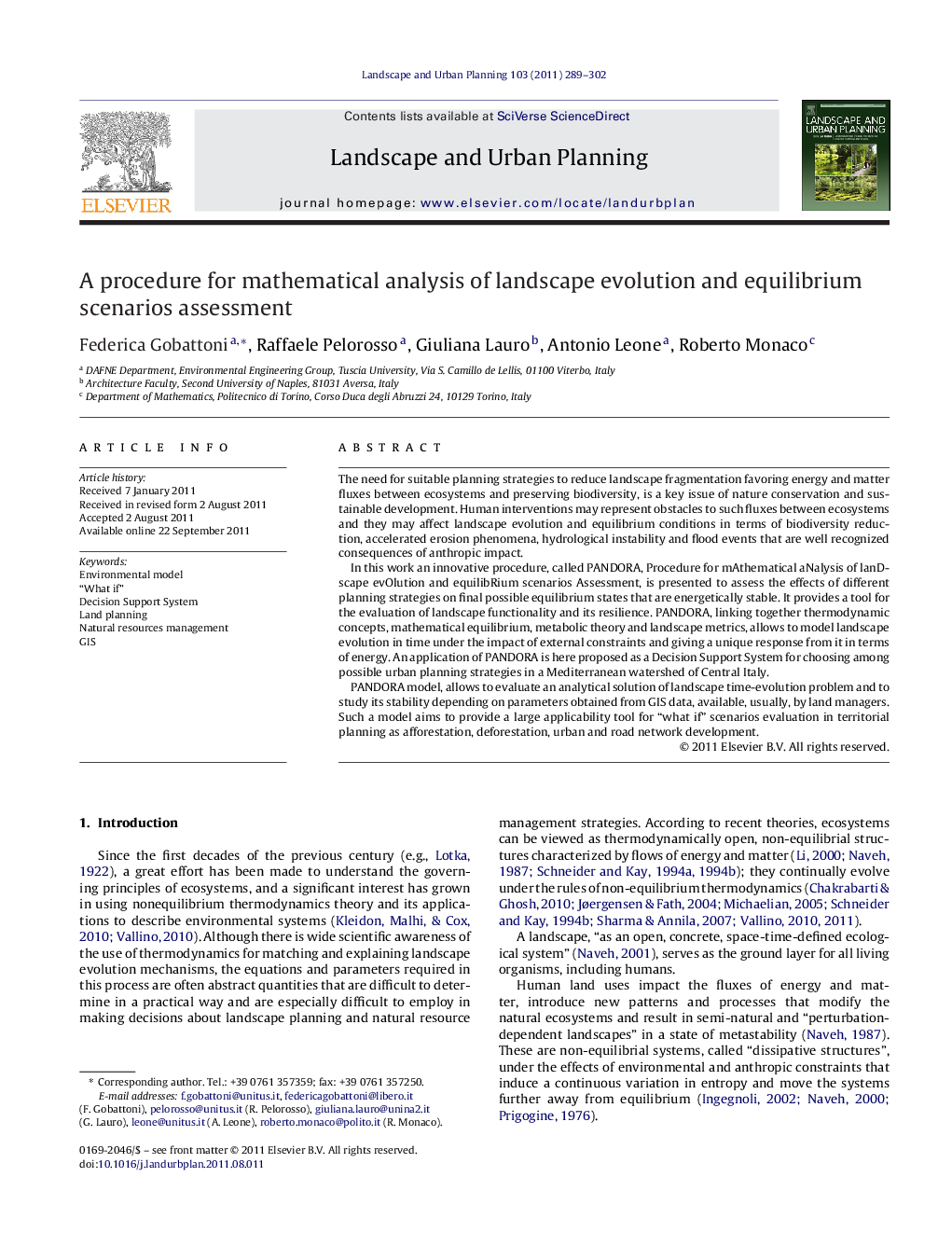| Article ID | Journal | Published Year | Pages | File Type |
|---|---|---|---|---|
| 1049639 | Landscape and Urban Planning | 2011 | 14 Pages |
The need for suitable planning strategies to reduce landscape fragmentation favoring energy and matter fluxes between ecosystems and preserving biodiversity, is a key issue of nature conservation and sustainable development. Human interventions may represent obstacles to such fluxes between ecosystems and they may affect landscape evolution and equilibrium conditions in terms of biodiversity reduction, accelerated erosion phenomena, hydrological instability and flood events that are well recognized consequences of anthropic impact.In this work an innovative procedure, called PANDORA, Procedure for mAthematical aNalysis of lanDscape evOlution and equilibRium scenarios Assessment, is presented to assess the effects of different planning strategies on final possible equilibrium states that are energetically stable. It provides a tool for the evaluation of landscape functionality and its resilience. PANDORA, linking together thermodynamic concepts, mathematical equilibrium, metabolic theory and landscape metrics, allows to model landscape evolution in time under the impact of external constraints and giving a unique response from it in terms of energy. An application of PANDORA is here proposed as a Decision Support System for choosing among possible urban planning strategies in a Mediterranean watershed of Central Italy.PANDORA model, allows to evaluate an analytical solution of landscape time-evolution problem and to study its stability depending on parameters obtained from GIS data, available, usually, by land managers. Such a model aims to provide a large applicability tool for “what if” scenarios evaluation in territorial planning as afforestation, deforestation, urban and road network development.
Graphical abstractFigure optionsDownload full-size imageDownload as PowerPoint slideHighlights► A new holistic procedure is proposed to assess landscape scenarios in land planning. ► A landscape graph is built to represent the energetic state of a landscape. ► A mathematical model evaluates landscape equilibrium states in terms of energy. ► An application to a study area is proposed as a Decision Support System for urban planning. ► The procedure provides a useful tool for ‘what if’ scenario analysis.
